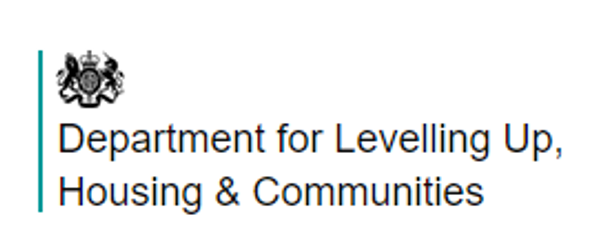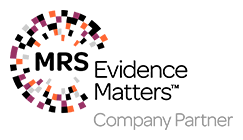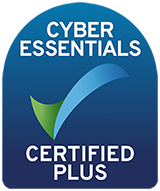We are determined to maintain the highest standards in all of the work that we undertake, and to this end we use our own, rigorous quality approach. Each component part of a project includes an element of Quality Assurance, and the Project Director takes responsibility for ensuring that all work is reviewed against the relevant QA standard.
We have different QA standards for different types of work, whether it is building a database or designing a questionnaire, but each standard is designed to ensure that:
- Outcomes conform to the specifications and expectations of the client
- All work is peer-reviewed by someone with appropriate knowledge and experience
- Work takes into consideration leading thinking on best practice
- Work is of a high standard
- Work represents good value for the client
- Work conforms to relevant legal and regulatory requirements
Data collection, input and analysis
Acuity is responsible for the data analysis on completed surveys, including checks for the representativeness of the population as a whole, with weights applied as appropriate.
Benchmarking
Benchmarking data is validated automatically when it is input via our data entry forms and then manually checked when benchmarking reports are prepared. Outlying figures are compared are verified with the contributing organisation.
Data file transfer
Acuity requires all clients to use a secure data file transfer method – not email. As a minimum, we will accept password-protected data files sent by secure file transfer, with the password sent in a separate file or relayed via a telephone call. Acuity is happy to work with clients who subscribe to commercial data transfer services and can provide access to our own secure file sharing if required. Access to client data files on at Acuity is restricted and the process is managed by our data controller.
Quality control and data cleaning
Acuity and our researchers carry out a series of processes throughout the survey to ensure a high quality of data accuracy and analysis. Before carrying out any survey, our Data Analyst will check the initial data file supplied by the client to ensure that the data provided is sufficient for the fieldwork, that it contains the necessary property- related information (e.g. bed no, property type) and that the information is up-to-date and contains valid records.
Data analysis
Once the raw data output files are available, a series of checks, which have been developed by our Data Analysts, are made to ‘clean’ and validate the data. These include checking internal consistency, routing errors, and missing value re-coding assessments. Further technical details are available on request.
Sets of data tables will be produced which will include sets of cross-tabulations with breaks as agreed with the client. After the data tables have been run they are checked by another member of the team for accuracy and sent to the client.
Reporting
After the report has been written it is checked by another member of the team for clarity and grammar; and all figures and percentages are re-calculated.
Equal opportunities, confidentiality and the Data Protection Act
When the surveys are completed, a unique reference number will enable them to be linked with names and addresses, but we retain this information and would not release this to The client without the express permission of the respondents. When reports are written by Acuity, comments will not be made on the opinions or traits of very small subgroups, when it becomes possible to identify individuals.
Our policies and standards
Details of our standard terms and conditions and summary insurance information are available on our website here. We would be happy to provide any of the further documents as required: anonymised reports, equality and diversity policy, insurance certificates, risk assessment and our customer standards policy.
Acuity observes closely the provisions of Data Protection Legislation and, as Company Partners, we adhere strictly to the Market Research Society (MRS) Code of Conduct in relation to quality, data protection and respondent confidentiality. Our project management, training and quality processes adhere fully to ISO20252:2019. The MRS Code of Conduct is designed to support all those engaged in social research to maintain a professional standard; it gives assurance that research is conducted in an ethical manner, and it is needed to create confidence in, and to encourage co-operation among, the business community and the general public.
In following the principles enshrined in the 2018 Data Protection Act, the ISO20252:2019 standard and the MRS Code of Conduct, Acuity ensures that all personal data are:
- processed fairly and lawfully
- only used for the specific and lawful purposes for which they are collected
- adequate, relevant and not excessive
- accurate and up to date
- not kept beyond fulfilling the purpose for which they are collected
- processed in accordance with the rights of data subjects
- kept secure
- not transferred outside the EU unless adequate protections are in place.
We ask that any social landlord we work with ensures that its Data Protection registration entitles them to release the names and addresses to Acuity for this survey.
We assign a unique reference number to each questionnaire in the case of a postal survey (and each respondent if interviews are conducted) this enables us to link with other information in the sample relating to each respondent, such as property type, for further use in the data analysis.
This information is retained in complete confidence by Acuity, however, and under no circumstances would any information be released from the survey that enabled individual responses to the survey to be identified. In addition, when we write up the survey results, comments will not be made on the opinions or traits of very small subgroups, when it becomes possible to identify individuals.
All data files provided to the client for further analysis are completely anonymised prior to being released, in line with Data Protection Act 2018 guidelines.
Telephone interviewers
Our researchers regularly conduct quantitative and qualitative telephone interviews in consumer and business markets on a wide range of subjects. All telephone work is fully supervised, and interviews are monitored on a regular basis by supervisors. All interviewers are given a comprehensive briefing prior to the commencement of the fieldwork, to ensure that interviewers understand the purpose of the exercise and are fully aware of the requirements of the questionnaire.
We understand the sensitivities of research projects and only suitable and experienced interviewers are used for this survey. All telephone interviewers and fieldwork will operate in accordance with the Market Research Society code of conduct September 2014 (further information can be obtained from https://www.mrs.org.uk/standards/code_of_conduct ).
Our researchers work only on research surveys and are fully trained and experienced in handling sensitive questions and social housing clients. Emphasis is placed in the training that whilst needing to remain impartial, the interviewers are effectively an element of the customer service that the respondent receives and appropriate professionalism is highly important.
Our researchers will give a detailed briefing to all interviewers selected to work on this project. This will cover aspects such as the background to the project, the type people they are looking to talk to and the likely contact that people may have had with the client. We like the client to have input into the briefing notes.
All calls are recorded.Supervisors listen to a minimum of 5% of calls to ensure the interview was conducted correctly in line with MRS guidelines and all responses were recorded accurately. Our clients are welcome to listen to a random selection of calls for auditing and questionnaire development.
Additionally, we would flag the records of respondents who would like to be re-contacted by the client, for example, if they are dissatisfied with the service or just need further contact. We also ensure that any respondent who needs assurance that the call is genuine is supplied with the appropriate contact number.
Further quality controls
Further quality controls
Our researchers will safeguard the data supplied in accordance with the Data Protection Act and professional memberships to ensure that the data subjects are protected at all times. This includes:
- Continuous off-site backups (all data and information is backed up including the SQL database in which the records are held, current interviews, previous data sets, exchange server etc.) so that in the event of a disaster all data can be recovered quickly and securely.
- Strictly limited administrator access to the database.
- Data destruction by means as appropriate for the type and sensitivity of the data. MS Office 365 allows for files to be permanently deleted so that no trace of the data remains. All paper documents including questionnaires are securely destroyed with full documentation.
- Calls are stored for auditing purposes for 6 weeks or until the project is concluded – whichever is soonest. If the client wishes to listen to calls on request, we can send selected call recordings as .wav files for any call made during this period to ensure that they are happy with the quality of our interviewers.
Response rates
Key points on maximising response rates are:
- Ensuring that telephone numbers are correct at the outset using data append
- Ensuring that if the program becomes a continuous approach, that numbers are actively sought. We can provide a list of those who had incorrect numbers for the client to assist in the correct process – e.g. send a letter or ask managers to keep this up to date.
- That the script and survey is relevant and simple; it needs to be kept short (ideally not more than 5 to 8 minutes).
- That the data cleaning exercise is treated as a separate exercise to the survey.
- Respondents aren’t re-contacted too frequently
- Maximise fieldwork times – our standard call centre times are from 9:30 to 20:00 during the week and 10:00 – 16:00 at weekends although times of calling are agreed with each client and set according to the needs of a particular project.
- Our software ensures that numbers are tried at different times of the day and week before assuming a non-response.
- Our number is generally withheld – but we ensure that once a number has been dialled a couple of times without response, we try with our number (particularly important for mobile numbers).
- Interviewers are also trained to be aware that someone called on their mobile phone may not be in a convenient place to complete a survey. If this is the case, the interviewer will arrange a time convenient for the respondent to call back, on either on the same number or an alternative number
- We have a call scheduling part of our program to ensure that any call –backs arranged are conducted on time.
Data protection
Acuity takes data protection very seriously and our General Privacy and Data Protection Statement may be found on our website here: https://www.arap.co.uk/about/privacy-data-protection-2/
Acuity is registered with the Information Commissioner’s Office, reg. number: Z9651144.
Data retention
Acuity will retain client data for a limited period of time following completion of a project, in order that we can provide and additional reports or information requested by the client. The normal period of time for which Acuity retains personal data are 365 days for all types of records e.g. digital records, paper records, recorded data, etc. This data retention period is also included in the project specification brief. The period can be altered to meet the Client’s requirements.
Acuity’s Privacy and Data Protection Statement regarding Research Projects may be found on our website here: https://www.arap.co.uk/resident-satisfaction-star-surveys-privacy-and-data-protection-policy/





